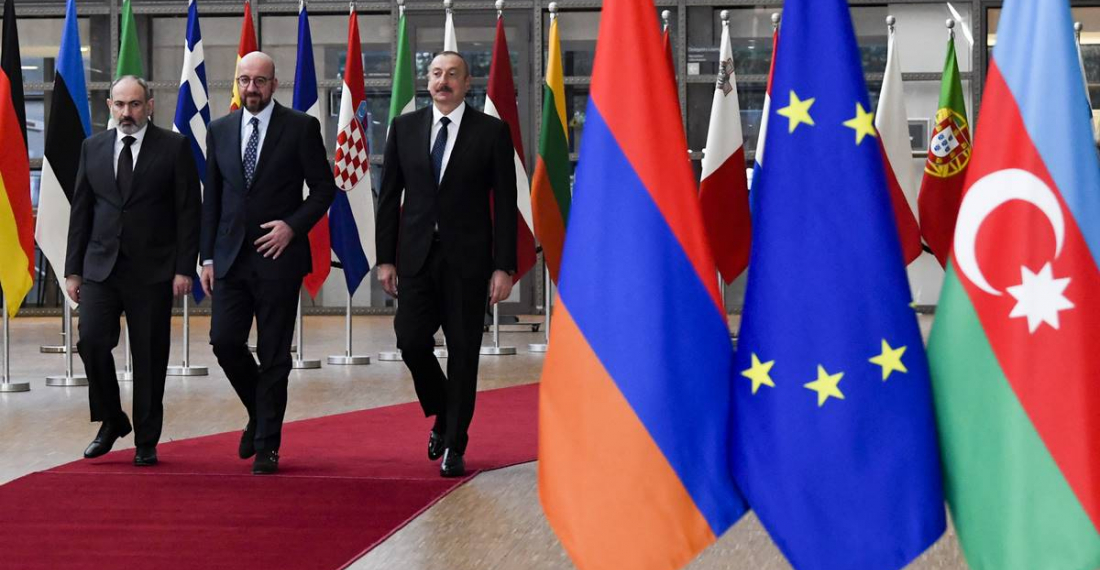After four hours of intensive discussions in Brussels on Wednesday evening (6 April), European Council president Charles Michel announced that the leaders of Armenia and Azerbaijan had agreed to instruct their foreign ministers to start work on the preparation of a peace treaty, which would address all necessary issues. "The process has started. It started tonight", president Michel told journalists.
Michel earlier met separately with Armenian prime minister Nikol Pashinyan and with Azerbaijani president Ilham Aliyev, before the three convened for their meeting.
Michel described the meeting as "excellent and very productive".
During the meeting it was also agreed to convene a Joint Border Commission by the end of April with a mandate to delimit the bilateral border between Armenia and Azerbaijan and to ensure a stable security situation along, and in the vicinity of, the borderline.
The leaders also discussed the restoration of communications/connectivity infrastructure between Armenia and Azerbaijan in particular and in the South Caucasus more broadly. The EU is ready to support the development of connectivity links, including in line with its Economic and Investment Plan and by utilising the proposed economic advisory forum to identify common projects.
During the meeting President Michel emphasised the importance of humanitarian gestures by both sides to promote confidence and peaceful coexistence. He stressed the need for the full and speedy resolution of all outstanding humanitarian issues, including the release of remaining detainees and comprehensively addressing the issue of missing persons, and stated that the EU is ready to support this endeavour. The EU will likewise continue to support confidence building measures between Azerbaijan and Armenia as well as humanitarian de-mining efforts, including by continuing to provide expert advice and stepping up financial assistance, and assistance to conflict-affected populations, rehabilitation and reconstruction.







